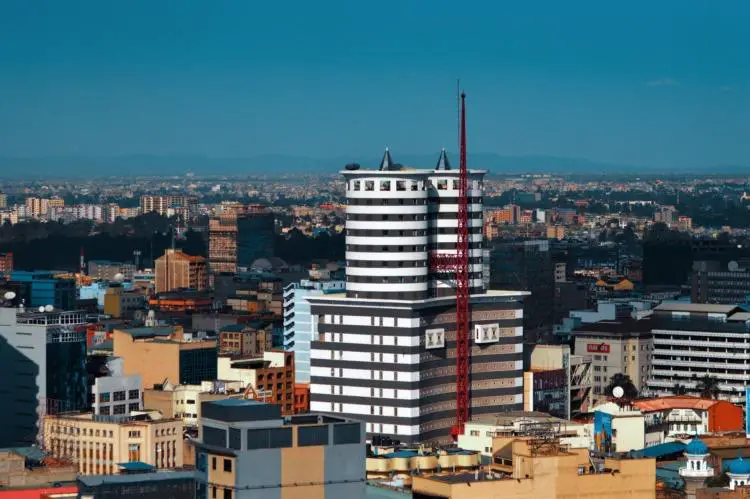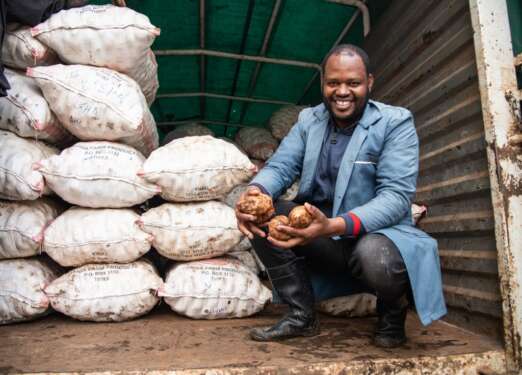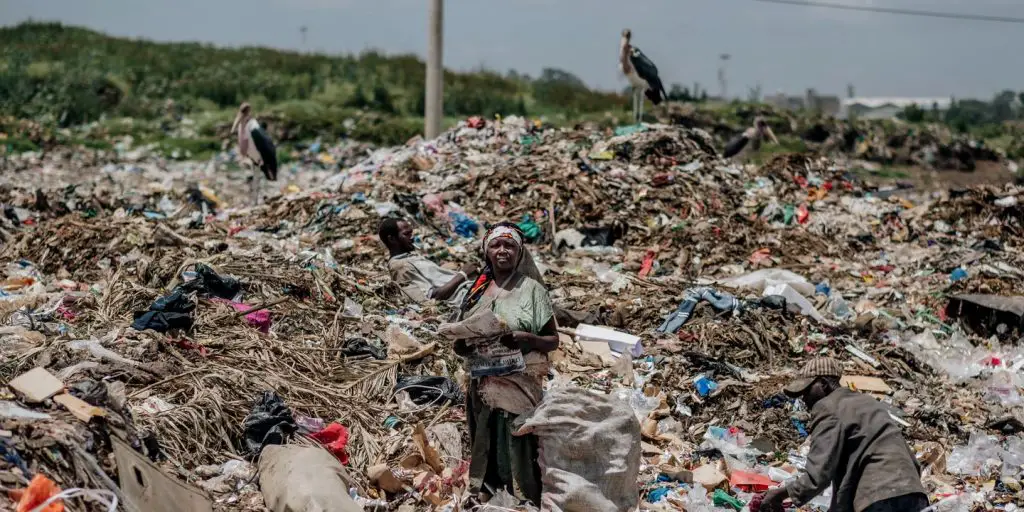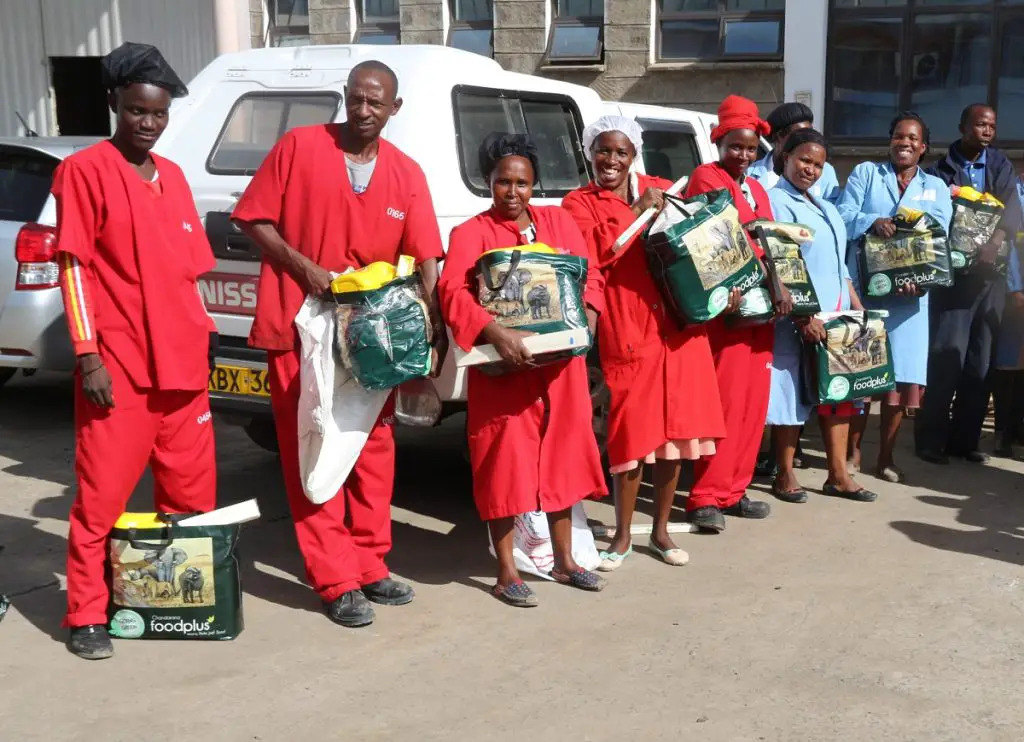- Africa’s new dawn: the rising role of digital and AI in agriculture
- Can Dangote Refinery Transform Africa Energy Ambition
- Gallup Survey: 80 per cent of Kenyan Workers Are Disengaged and Seek New Opportunities
- Madagascar Man Freed from 5KG Tumor After 15-Year Struggle
- How women in Africa are perceived and treated
- Sugar consumption in Kenya to Increase to 1.23 Million Tonnes
- Can Somalia and Turkey Oil deal Bring Change in Somaliland
- Remittances to Kenya dropped to $371.6 million in June, marking a six month low
Browsing: KAM
Regressive taxation, bureaucracy, and the expense of regulatory compliance are cited in the Plan as the main obstacles to rescuing Kenya from the “economic hole” it is now in.
Examining and streamlining all business licences is the first step in the economic reform process, intending to cap overall licencing expenses at 1.5% of turnover fees.
As correctly stated in the Plan, passing an administrative burden law resembling the Reduction of Paperwork Act in the United States of America will guarantee that no company spends more than four person-hours per month on tax and regulatory compliance.
The ease and cost of conducting business in Kenya have remained critical barriers to the country’s economic growth.…
- Kenya’s government has been urged to address challenges manufacturers face amid the implementation of the Africa Continental Free Trade Area (AfCFTA)
- The government is yet to put in place mechanisms to ensure the country takes full advantage of the benefits of AfCFTA to manufacturers
- Dwindling country competitiveness and lack of product competitiveness
The government of Kenya has been urged to address challenges manufacturers face amid the implementation of the Africa Continental Free Trade Area (AfCFTA).
Kenya Association of Manufacturers (KAM) Acting CEO Tobias Alando noted that whereas the trade agreement provides the best opportunity to realise the regional, national and business goals, Kenya is yet to put in place mechanisms to ensure the country takes full advantage of the benefits of AfCFTA to manufacturers.
Challenges facing manufacturers in Kenya
Alando noted that the export market in Africa is expected to increase with the full implementation of AfCFTA. However, if unaddressed,
The lack of harmonised standards, failure to implement the Single African Air Transport Market (Saatm) and the export of raw commodities remain the continent’s biggest obstacles to trade.
In addition, African countries have some of the most rigid visa and work permit requirements, they have multiple testing agencies and erect unnecessary roadblocks for random checks along transport corridors which increases the cost of cross-border trade.
This, eventually, deals a blow to the Micro, Small and Medium Enterprises (MSMEs) which also happen to be the backbone of the continent’s economy.…
Kenya has announced plans to revive small industries across the country, in a bid to spur value addition and market access for targeted products through projects led by the youth.
The Trade, Industrialization and Enterprise Development Principal Secretary Kirimi Kaberia said the ministry has completed mapping out villages and their unique products countrywide, according to Business Daily.
According to the PS, the Ministry is looking to attract more youth into manufacturing through cottage industries.
Kaberia said the government’s plan is to have functional industries in the next 12 months through transfer of resources in the rural areas.
“We want to have an environment where local people consume what they produce,” he said.
The plan, dubbed ‘one village, one product’, is part of Kenya’s Vision 2030.
Why Kenya’s manufacturing is uncompetitive
It is also part of the government’s plan of growing the contribution of the countries manufacturing to GDP from 11 …
Observed every 7 July, Tanzania’s Saba Saba annual trade fair has this year climaxed with a three day meeting by traders and government officials from Kenya and Tanzania.
The event lasts about a week before the apex on the 7th of every July. This year, the end of the fair has marked the start of a meeting on trade promotion and market access between the two countries. The meeting comes in the wake of Presidential commitments made by Kenya’s President Uhuru Kenyatta and Tanzania’s President Samia Suluhu Hassan and the just concluded bilateral negotiations on trade between the two States.
Hosted in partnership between Tanzania’s Confederation of Tanzania Industries (CTI) and Kenya’s Kenya Association of Manufacturers (KAM), the meeting brings together manufacturers from various sectors of the economy. They include Food and Beverage, Edible Oils, Chemicals, Automotive, Leather to mention but a few.
The MPA outlines proposals to support robust economic and manufacturing sector recovery, consistent with the government’s post-Covid-19 recovery strategy. The Priority Agenda highlights the importance of a competitive local manufacturing sector.
With the globalization of world economies, it is impossible to insulate production or demand from global competition and changes. As such, manufacturers in Kenya must battle it out with formidable competitors such as China, India, Egypt, and South Africa. Improving regulatory efficiency, promoting access to quality, affordable and reliable energy, reducing transport and logistics costs, and enhancing cash flow for manufacturers will drive our competitiveness.…
Kenya’s Association of Manufacturers have urged Government to harmonize laws, policies and regulations, at the National and County levels, to drive the competitiveness of local industry.
This was during the launch of the Regulatory Audit Report, 2020 that highlights regulatory challenges facing the business community across the country.
Speaking during the launch, KAM Chair, Mucai Kunyiha explained that whilst regulations seek to create a level-playing field for businesses, regulatory overreach hinders the competitiveness of local industry.
“At the national level, manufacturers are required to adhere to duplicating requirements, from different regulatory bodies, in addition to meeting numerous tax obligations. In the counties, we have to pay various fees, levies and charges. This drives up the cost of doing business in the country, thus reducing our competitiveness locally, regionally and even globally,” highlighted Mr Kunyiha.
The county governments have also been urged to formulate a tariffs and pricing policy to guide …
Manufacturers turn PRO as US bulldozes Kenya over plastics
In August this year, Kenyans and conservationists everywhere were up in arms after it emerged that the US was arm-twisting Kenya to rescind its tough stance on plastics.
The decision was by the American Chemistry Council which has lobbied the US government during the Covid-19 pandemic to use a US-Kenya trade deal to expand the plastics industry’s footprint across Africa.
According to Greenpeace, documents obtained by Unearthed, it’s investigative journalism platform, show that the same lobby group, which counts Shell, Exxon, and Total among its members, also lobbied against changes to the international Basel Convention, which put new limits on plastic waste entering low and middle-income countries.
Read: KAM, CGK partner to manage post-consumer plastic waste in Kenya
Already, 34 out of 54 countries have adopted some form of regulation to phase out single-use plastic.
Plastic waste management in Kenya
Greenpeace …
Desperate times call for desperate measures and with Kenya’s flower sector hit hard by covid-19, it is time that the country sought ways to maintain relationships with its key markets.
The first gesture by the Kenya flower sector has been to send some 300 bouquets to the United Kingdom in what was called “solidarity with covid-19 frontline combatants” in a campaign dubbed Flowers For Hope.
Kenya’s national carrier Kenya Airways (KQ) flew the consignment on Friday night last week in a move set to keep the flower market open for business when the coronavirus pandemic passes.
The flowers to be distributed to those in the frontline of combating the pandemic including doctors, nurses and recovering patients and care homes were in sleeves inscribed with President Uhuru Kenyatta’s goodwill message.
Kenyatta’s message read, “There have been a few moments in history when the world has faced a crisis as far-reaching …
With an extra three billion people predicted to live here in the next 30 years, the waste footprint will also increase on a massive scale.…














